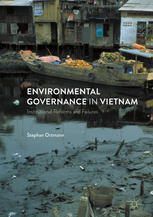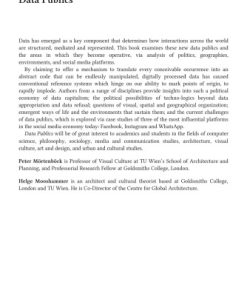Critical Analyses of Educational Reforms in an Era of Transnational Governance 1st Edition by Elisabeth Hultqvist 3319619713 9783319619712
$50.00 Original price was: $50.00.$25.00Current price is: $25.00.
Critical Analyses of Educational Reforms in an Era of Transnational Governance 1st Edition by Elisabeth Hultqvist – Ebook Instant Download/Delivery ISBN(s): 3319619713, 9783319619712

Product details:
- ISBN 10: 3319619713
- ISBN 13: 9783319619712
- Author: Elisabeth
This book represents a set of critical analyses of educational reforms where issues of transnational governance are of vital concern. It focuses on different aspects of, and practices in educational reform-making, and in particular on governing techniques and the working of new agencies such as supranational and multinational organizations. In addition, the book examines contemporary issues of immigration/immigrants in the politics of schooling, by reflecting on matters of migration, and problematizing how concepts such as exclusion and abjection make the migrants appear “failed”, “insufficient” and even “dangerous”. The book provides theoretical insights into critical relations between knowledge and power, governance and governmentality, and notions concerning educational systems, as well as how these are compared.
Table of contents:
Chapter 1: Critical Analyses of Educational Reform – Writing a Title and Editing a Book
Part I: Studies of Transnational Governance of Education
Chapter 2: Narrating and Relating Educational Reform and Comparative Education
Chapter 3: Reforming Education: The Spaces and Places of Education Policy and Learning
Part II: Educational Reforms and Transnationalization
Chapter 4: Education Governance by Results? On Communication in a Performative Turn
Chapter 5: Educational Restructuring and Social Boundaries: School Choice and Consumers
Chapter 6: Becoming Fit for Transnational Comparability
Chapter 7: Killing Two Birds with One Stone: Globalizing Switzerland by Harmonizing the Cantonal
Part III: Making Kinds of People as the Imperatives of Education: The Practice of Governing the
Chapter 8: Reform and Making Human Kinds: The Double Gestures of Inclusion and Exclusion
Chapter 9: The Transnational Phenomenon of Individual Planning in Response to Pupil Diversity:
Chapter 10: Refiguring the European Student: Mixed Transnational Feelings
Chapter 11: Student Centredness and Learning from a Perspective of History of the Present
Chapter 12: Governing the Intermediary Spaces: Reforming School and Subjectivities Through Liminal
Chapter 13: Digital Technologies in the Classroom: A Global Educational Reform?
Part IV: Migration and Population Flows
Chapter 14: When the Other Arrives to the School
Chapter 15: A Manifestación to Disinvent Mundus’ Authoritarian Regimes and the Categorical Imp
Chapter 16: Migration as a Method: Deterritorializing the “Floating Children” in Contemporar
People also search:
critical analysis of new education policy 2020
educational reforms examples
summary of education reform
educational reform issues
criticism of education system
You may also like…
Engineering
Politics & Philosophy - Anthropology
An Archaeology of the Contemporary Era 1st Edition Alfredo Gonzalez Ruibal
Politics & Philosophy - Government & Politics
Politics & Philosophy - Social Sciences
Medicine
The New Eugenics Selective Breeding in an Era of Reproductive Technologies 1st Edition Judith Daar
Science (General)
Structural and Thermal Analyses of Deepwater Pipes Chen An 3030535401 9783030535407
Business & Economics
Data Publics: Public Plurality in an Era of Data Determinacy Peter Mörtenböck












